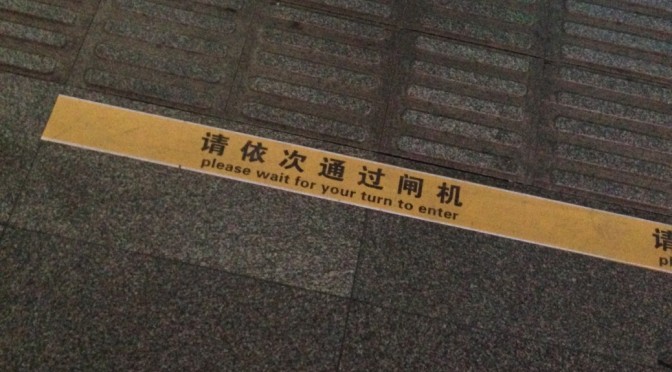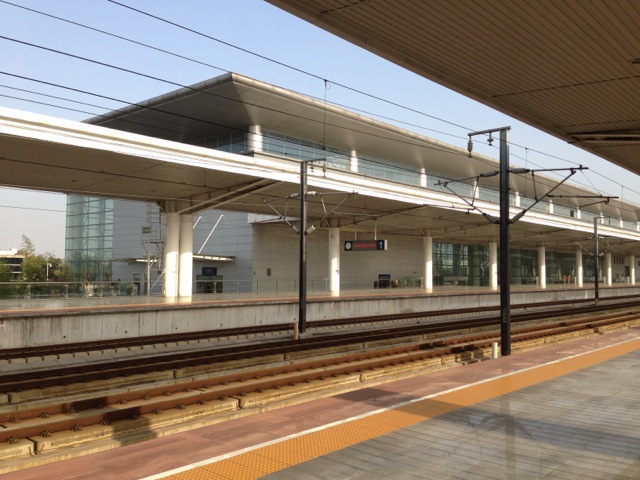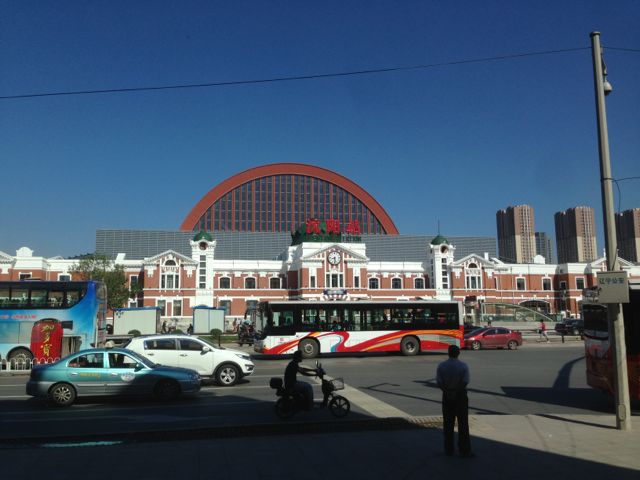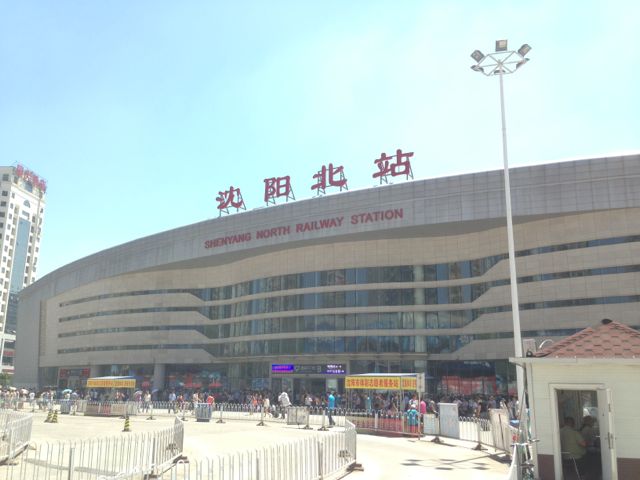Despite my increased presence outside of Beijing this year, as a plan to explore this weird, at times wild, but always wonderful world of ours, I’m still involved in improving railway English for China’s railway system for 2014, and I’ll keep my “non-rail” identity (as in: not working as an official member of rail staff), as I’ve done so in 2013 and in initial efforts back in 2012.
I have to say that China’s railway system has remained mixed with regards to the English enhancement programme. On the one hand, I suspect those who drafted out earlier versions certainly aren’t pleased at their “hard work” being wiped out by a non-PRC citizen interested in pro bono enhancements to society, and the dispute over “Should we call Qingdao’s new station “Qingdaobei” or Qingdao North?” is still at times unsettled. On the other hand, though, we are seeing much improved English at an increasing number of stations around China — customers are now told to “please allow passengers more space” at ticket officers, and riders are being told at Ji’nan’s west station that “international passengers must book at manned counters” (instead of previously no English at all; although even here I suspect the English can still be improved further).
For 2014, these are my goals, which are slightly less on “new features” and more on “maintenance and sustainability”:—
- Improve English according to fixed standards as approved by the newly-formed independent, multinational board of language experts.
- Based on China Railways’s unique international ridership, adopt UK English (no longer US English), as UK English is seen much more in multilingual environments, especially in Europe.
- Create an Internet-based “English on demand” system, and begin work on eventually creating a password-protected database containing the whole English / Chinese rail dictionary / phrasebook.
- Continue the Everyday Rail English Branding System: keep the Everyday Rail English and Bilingual Rail Info presentation forms (optimise font use where needed), and in doing so, make the railway trains come closer to city metro trains by providing more transfer and city transit-related content.
- Maintain an open, expansion-based system so that any developments or changes in the national railways system (eg: the implementation of a new ticketing policy) can immediately be reflected, and the necessary English be generated.
- Eventually down the line — prepare a book of sorts, so that people can have something they can actually put their finger on to improve English. Furthermore, create audiovisual or audio-only content — merely text-based content won’t help all that much!
The idea behind this is: once the whole system is set up, at least for the immediate-short term, it really doesn’t matter where I’m based: everything’s Internet-based, so it doesn’t matter as much if I’m in Beijing, Bristol, or Boston.



